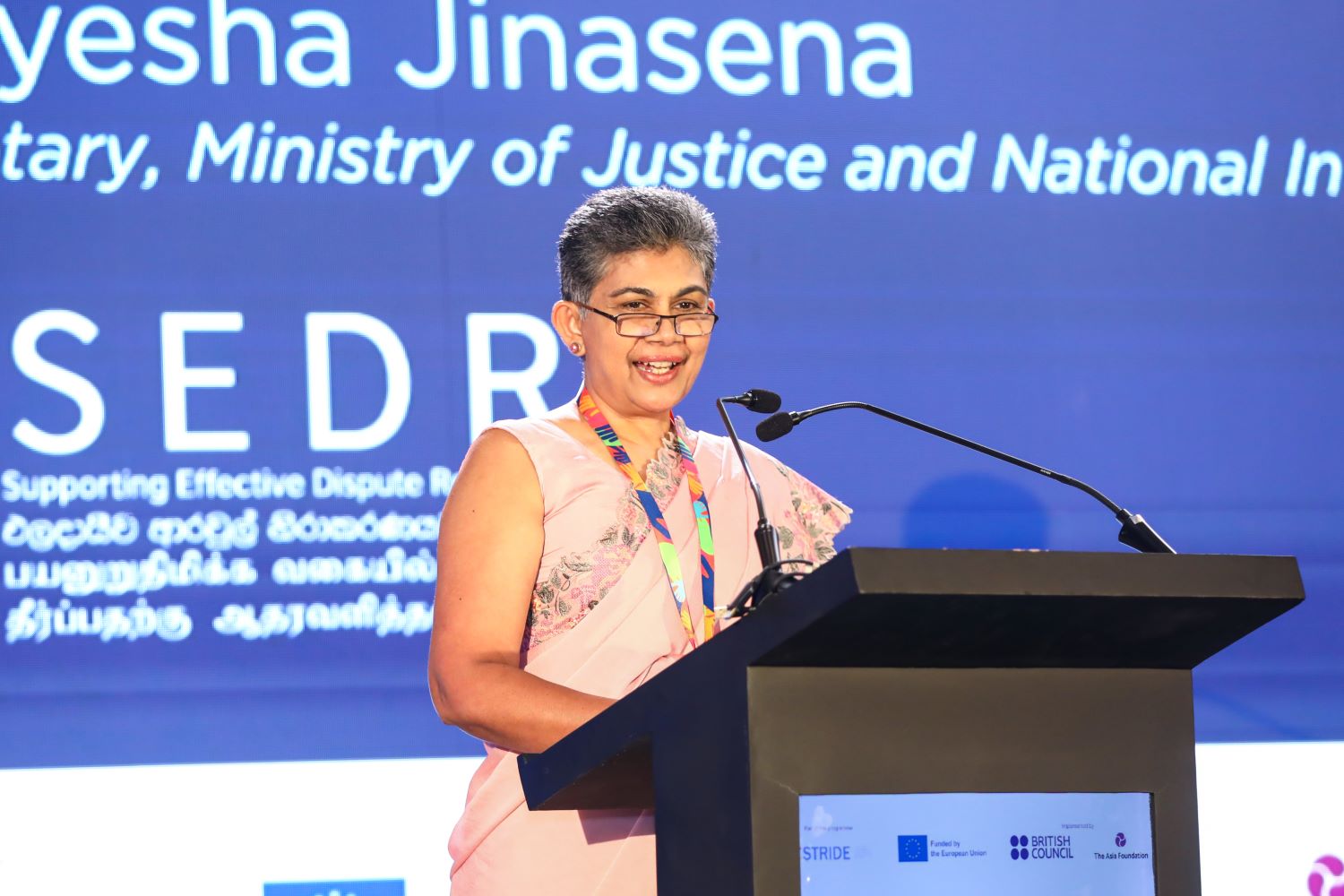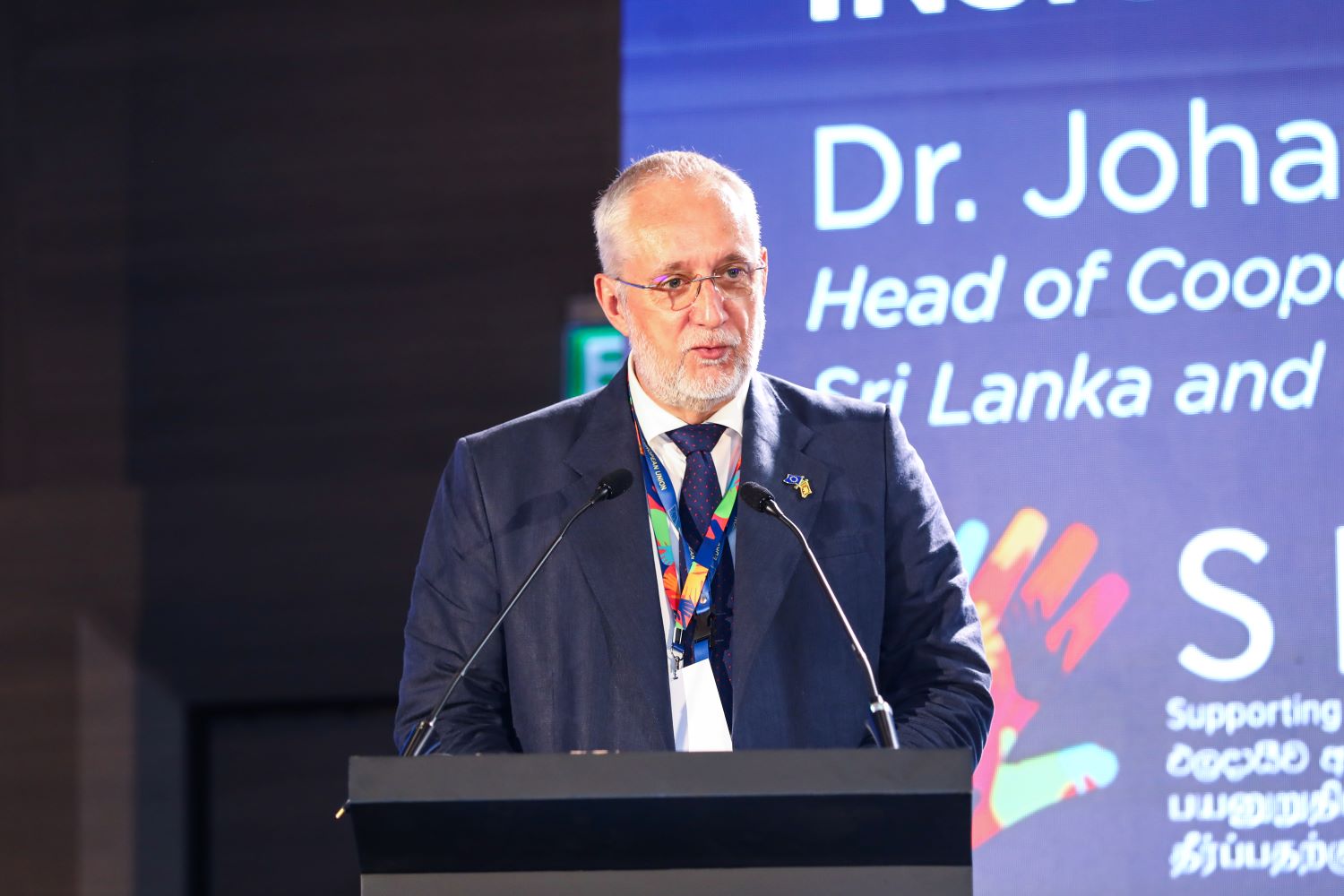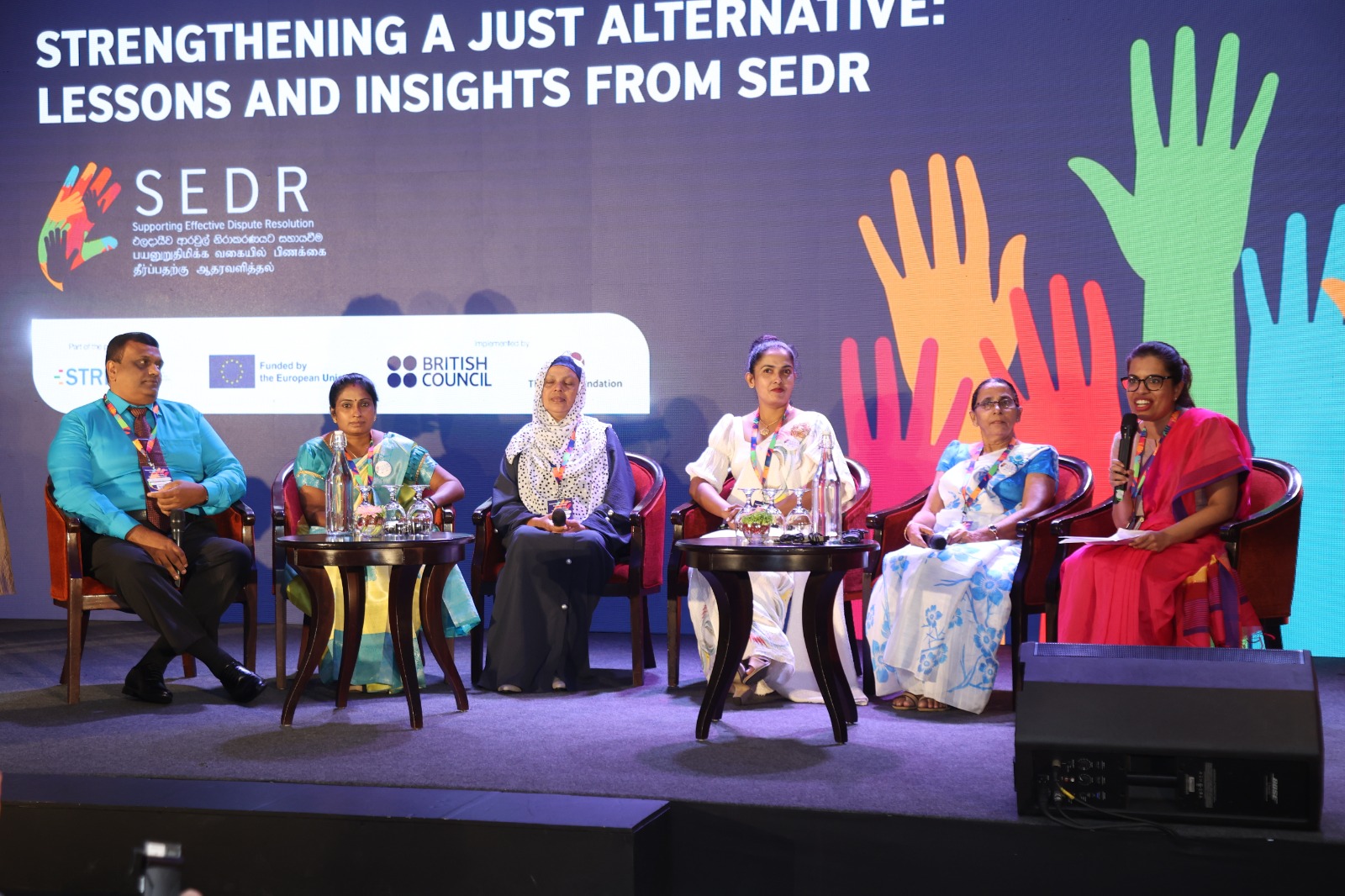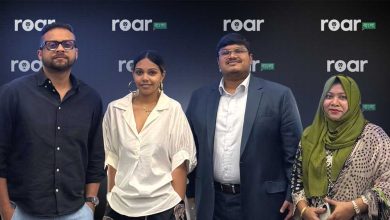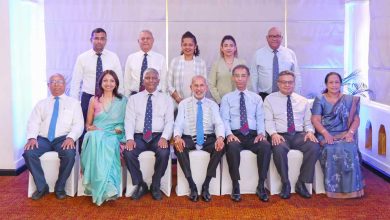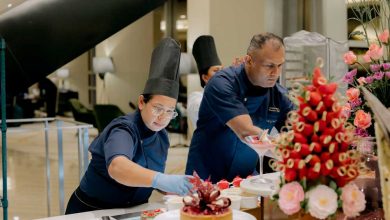EUROPEAN UNION
European Union funded SEDR Project supports access to mediation services for over 500,000 people in Sri Lanka annually
Colombo, Sri Lanka (15 May) – The Supporting Effective Dispute Resolution (SEDR) project, funded by the European Union (EU) and implemented by the British Council in partnership with The Asia Foundation, concluded its five-year journey with the SEDR End-of-Project Symposium on 29-30 April 2025 at the Cinnamon Grand Hotel, Colombo. The event brought together key stakeholders from the justice sector, civil society, academia, and development partners to reflect on the project’s impact, share lessons of good practice and strengthen alternative dispute resolution (ADR) networks in Sri Lanka.
Over the past five years, SEDR has supported and strengthened the work of more than 8,500 volunteer mediators, who together have helped to resolve over a quarter of a million disputes annually across Sri Lanka. Through collaboration with the Ministry of Justice and National Integration, local government authorities, and civil society organisations, SEDR has trained mediators, introduced innovative arts-based approaches to dispute resolution, and provided communities with practical tools to resolve conflicts amicably.
SEDR has also been at the forefront of institutionalising peaceful dispute resolution among younger generations. The project has equipped over 280 educators and more than 1,700 school students with conflict resolution and mediation skills through the School Mediation Programme – laying the foundation for a culture of peaceful dialogue from an early age.
The symposium featured panel discussions, impact storytelling, and interactive sessions on the role of mediation in Sri Lanka’s justice system, challenges in land dispute resolution, and the power of creative expression in promoting dialogue. One of the highlights was the launch of the SEDR Legacy Booklet, showcasing 12 individual stories of how ADR approaches have transformed lives and communities.
Speaking at the event, Ms. Ayesha Jinasena PC, Secretary, Ministry of Justice, and National Integration said, “Over the past five years, the SEDR project has significantly strengthened the national mediation programme and expanded access to justice at the community level. By supporting the capacity of mediators and introducing innovative tools such as school mediation and dispute intake boxes, SEDR has played a key role in embedding a culture of peaceful dialogue and dispute resolution in Sri Lanka.”
Orlando Edwards, Country Director of the British Council Sri Lanka, highlighted the British Council’s role in fostering dialogue and strengthening justice mechanisms:
“The British Council is proud to have led this initiative, working alongside dedicated mediators, and community leaders. The SEDR project has not only built capacity but has also fostered meaningful partnerships that will continue to shape Sri Lanka’s dispute resolution landscape in the years to come.”
Speaking on behalf of the European Union, Dr. Johann Hesse, Head of Cooperation, reaffirmed the EU’s commitment to access to justice: “This project is a testimony of the European Union’s commitment to support access to justice, reconciliation and inclusive governance in Sri Lanka. Investing in these areas is key to create an enabling environment for our engagement with partner countries in line with the EU’s Global Gateway Strategy”.
As the event concluded, stakeholders reflected on the personal impact of SEDR’s work, as captured in the legacy booklet’s 12 stories of transformation. These personal narratives underscored the real-world effects of mediation, highlighting how dialogue, trust-building, and non-adversarial approaches to conflict have changed lives and strengthened communities. For further information on SEDR and its impact, visit www.sedrsrilanka.org

